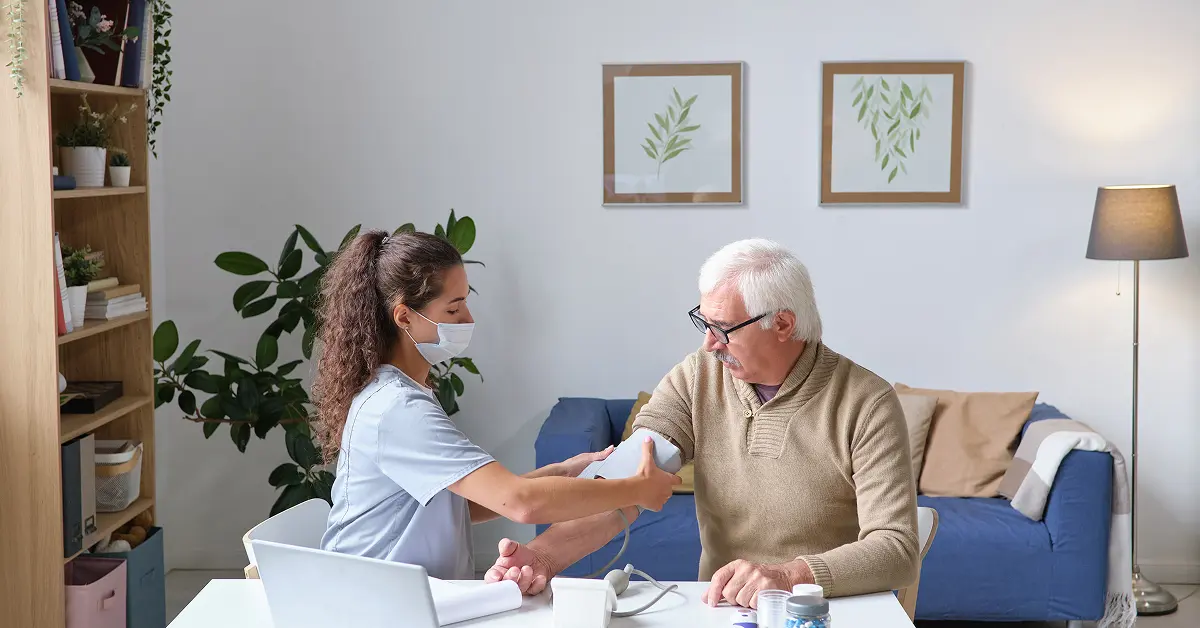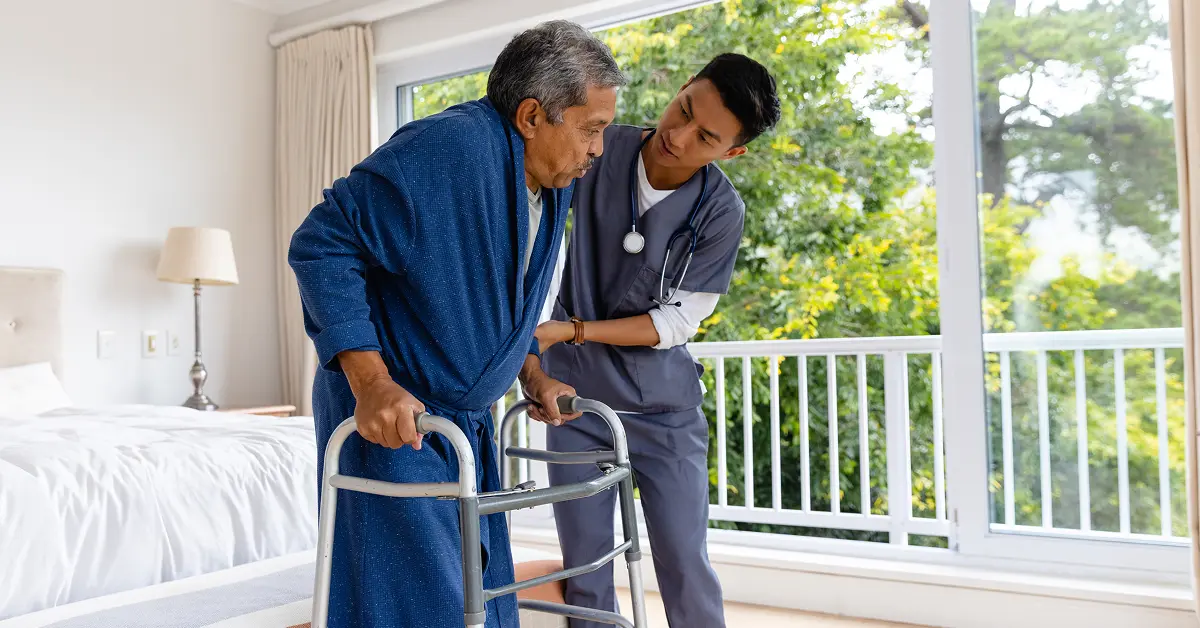Recovering after a hospital stay can be physically and emotionally challenging. Whether you’ve had surgery, a serious illness, or any medical procedure, the transition from Hospital Discharge to home care requires careful planning. Hiring a professional caregiver can make this process smoother, safer, and less stressful for both the patient and their family. Here are essential tips to help you find the right caregiver near you.
Assess Your Care Needs
The first step in hiring a caregiver is understanding the patient’s specific care needs. Some patients may need medical assistance such as medication management, wound care, or mobility support. Others may require more basic help, such as personal hygiene, meal preparation, or companionship.
Make a list of daily tasks and special requirements. This will help you identify whether you need a medical caregiver (like a nurse or home health aide) or a non-medical caregiver who can assist with daily living activities. Being clear about your needs ensures that the caregiver you hire is properly qualified.
Look for Qualified and Experienced Caregivers
Experience and qualifications matter significantly, especially after a hospital stay. A caregiver with experience in post-hospital recovery can better manage medications, monitor symptoms, and provide emotional support. Look for caregivers with:
- Certification in home health care or nursing
- Training in post-surgery or post-illness care
- References from previous families or employers
Hiring a trained professional reduces the risk of complications and ensures high-quality care.
Check References and Background
Safety is paramount. Always check references and conduct a background check before hiring a caregiver. Ask about:
- Their previous experience with post-hospital care
- Reliability and punctuality
- Interpersonal skills and bedside manner
Many professional caregiving services conduct thorough background checks for you, which adds an extra layer of security.
Consider Compatibility and Personality
A caregiver will spend a significant amount of time with the patient. Compatibility and personality are crucial for a positive caregiving experience. The caregiver should be:
- Patient and compassionate
- Respectful and understanding
- Comfortable with the patient’s routine and preferences
Meeting with potential caregivers before hiring allows you to gauge their approach and how they interact with the patient.
Decide Between Agency and Independent Caregivers
You have the option of hiring through a caregiving agency or an independent caregiver. Both have advantages:
Agency Caregivers:
- Pre-screened, trained, and insured
- Can provide backup support if the primary caregiver is unavailable
- Often offer professional supervision
Independent Caregivers:
- May be more flexible and affordable
- Can offer a personalized approach
- Requires you to handle background checks and supervision
Evaluate your priorities, budget, and level of comfort when choosing between the two.
Understand Costs and Payment Options
Caregiving services vary in cost based on experience, qualifications, and the level of care needed. Discuss rates upfront and clarify payment terms. Common options include:
- Hourly rates for short-term care
- Daily or weekly rates for extended care
- Payment via cash, bank transfer, or insurance coverage (if applicable)
Budgeting appropriately ensures there are no surprises later and that the caregiver is fairly compensated.
Establish a Care Plan
A clear care plan is essential for smooth recovery. Work with the caregiver to outline daily routines, medication schedules, dietary restrictions, and therapy exercises. Document any special instructions from your doctor. This ensures consistency in care and reduces the risk of mistakes.
Monitor and Communicate Regularly
Even after hiring a caregiver, your involvement is important. Regular check-ins help ensure that the patient is comfortable, following prescribed routines, and progressing in recovery. Encourage open communication between the caregiver and family members to address any concerns promptly.
Prioritize Safety and Emergency Preparedness
A good caregiver should be trained to handle emergencies, such as falls, sudden illness, or medication reactions. Make sure your caregiver knows:
- How to contact emergency services
- When to call the doctor
- How to provide basic first aid
Having a safety plan in place gives peace of mind for both the patient and family.
Look for Compassion, Not Just Competence
While skills and qualifications are essential, compassion and empathy are equally important. A caregiver who genuinely cares for the patient’s wellbeing can positively impact recovery, morale, and emotional health.
Seek Local Resources
When searching for a caregiver “near me,” explore local hospitals, rehabilitation centers, and caregiving agencies. Many hospitals maintain a list of trusted home care providers. Online directories and local community groups can also be helpful in finding reliable caregivers nearby.
Review and Adjust Care as Needed
Post-hospital recovery needs can change over time. Be prepared to adjust the caregiver’s responsibilities or schedule based on the patient’s progress. Flexibility ensures that the patient receives the right level of care at every stage of recovery.
Conclusion
Hiring a caregiver after a hospital stay is a crucial step in ensuring a smooth recovery at home. By assessing needs, checking qualifications, ensuring compatibility, and prioritizing safety, you can find a caregiver who provides professional, compassionate care. Remember, the right caregiver not only assists with physical recovery but also boosts emotional wellbeing, creating a comfortable and supportive home environment.
Investing time in finding the right caregiver “near me” is an investment in your loved one’s health, safety, and peace of mind.
Contents
- Assess Your Care Needs
- Look for Qualified and Experienced Caregivers
- Check References and Background
- Consider Compatibility and Personality
- Decide Between Agency and Independent Caregivers
- Understand Costs and Payment Options
- Establish a Care Plan
- Monitor and Communicate Regularly
- Prioritize Safety and Emergency Preparedness
- Look for Compassion, Not Just Competence
- Seek Local Resources
- Review and Adjust Care as Needed
- Conclusion
Our 24*7 services
Latest Posts
- What Is Respite Care and Why Is It Important
- Affordable home care for senior citizens in India
- Caring for Seniors with Dementia or Alzheimer's at Home
- Senior Caregiving A Guide for Every Family
- How to Write a Caregiver Resume That Gets You Hired
- How Care After Hospital Discharge Speeds Up Recovery at Home
- How to Get Home Health Care for Seniors Through Medicare
- What Does a Senior Citizen Caregiver Really Do at Home
- How to Care for Elderly Parents with Alzheimer’s or Dementia
- How to Get 24-Hour Care for Seniors at Home



